An impactful OpEd on NYCNewswire.com exposes a harsh reality about New York City’s housing dilemma: the real issue isn’t the available housing stock, but the limited number of affordable options. Even more troubling is how big-time developers, hotel lobbyists, and complicit officials have spun a narrative targeting small property owners, diverting attention from the primary causes. Hotel lobbyists and progressive policy makers blame small 2-3 family homeowners for the lack of available housing, which is an insane theory.
Distraction from True Accountability
Walk through neighborhoods like Gowanus, Greenpoint, East New York, Long Island City, and the South Bronx, and brand-new luxury skyscrapers are hard to miss. This isn’t rare, thousands of units are constructed, but still out of financial reach for middle and working-class New Yorkers. That’s because these apartments are set to market rates most families can’t afford. Meanwhile, hotel lobbyists and progressive policy makers advocate for limits on short-term rentals, not to free up housing, but to shield the hotel industry profits. They want you to believe that the housing “shortage” is because of the few apartments that are rented by 2 family homeowners instead of believing your own eyes. The brand new skyscrapers and mini-cities are in plain view for all to see. The OpEd says the progressive policy makers and hotel lobbyists think New Yorkers are blind or stupid. Those buildings are being built in every neighborhood throughout New York City, with hundreds and sometimes thousands of available housing units.
Who feels the squeeze? Not the developers asking $3,000+ for tiny studios, or the hotel industry, which charges over $500 per night, but small homeowners who need to rent units in their two- or three-family houses to make ends meet. Progressive policy makers and hotel lobbyists fight to stop 2 and 3 family homeowners from renting their extra apartment for short term rental, while the large developers go unchecked. The OpEd calls this a “brilliant PR maneuver” by vested interests, setting renters and owners at odds. Renters suffer because it has become harder to get access to a new apartment, due to skyrocketing fees and increased rents, as a result of poor policies.
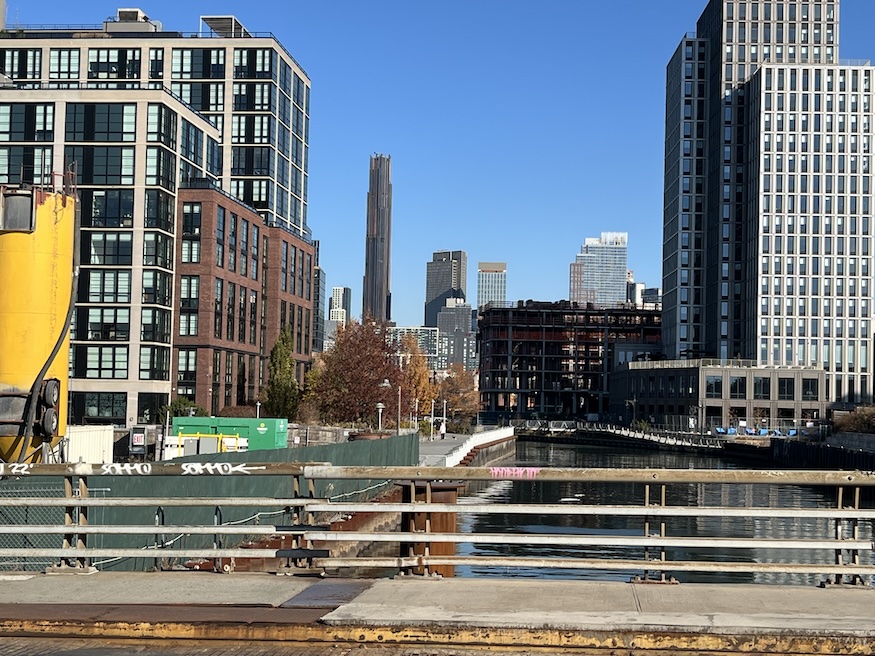
Gowanus Development – photo credit: NYC Newswire
Luxury Developments Remain Out of Reach
Gowanus, Long Island City, Hudson Yards, and East New York are seeing a surge of construction, with each project claiming to serve housing needs. However, the majority are unaffordable for most. Only a sliver, via the NYC Lottery, are reserved for low- to middle-income tenants, the overwhelming rest for high earners. Many young professionals must find roommates or lean on parental aid, an unsustainable trend. Black families typically do not have family members that they can lean on for funding, which causes another dilemma, gentrification.
This is not only about costs but access, as rents rise and upscale projects multiply, working-class New Yorkers are boxed out, intensifying competition and overall prices.
Policy Pitfalls
The OpEd argues that some progressive reforms have harmful side effects. For instance, broker fee regulations pushed by progressive lawmakers, intended to help tenants has instead led to rising rents and decreased supply. StreetEasy found that $13,000 fees became monthly rent increases. The Wall Street Journal reported rent hikes as high as 15% and a 30% drop in available affordable units.
Rules treating small landlords like corporate developers harm those who anchor neighborhoods, including hardworking 2 and 3 family homeowners, these aren’t faceless landlords, but vital community members who are trying to make ends meet.
Developers Hold the Cards
The OpEd underscores that politicians can’t match developers’ resources. Large firms deploy top legal, PR, and financial teams, while elected officials are often not equipped for tough negotiations. Rather than address big players, some officials make scapegoats out of small landlords. It’s easier to mark small homeowners as the enemy instead of battling hotel lobbyists and developers.
Calling out small homeowners as “hoarders” of apartments ignores the hundreds of vacant luxury units in high-rises. This story misdirects blame and perpetuates a false narrative against hard working homeowners.
The Misleading ‘More Housing’ Narrative
Perhaps the shrewdest ploy is the simplistic claim: “We need more housing”, which is echoed by most politicians, moderate, progressive and socialists. They simply are outmatched by slick lobbyists and developers. Developers and officials repeat the insane narrative that more housing is needed, while neighborhoods are flooded with new projects meant for profit, not regular people. The critical question is “More housing—for whom?”
The Path Forward: Solidarity and Accountability
The OpEd urges a ceasefire between renters and owners—united action is needed against a system favoring the wealthy and those who have wealthy families. This is how we get gentrification. Only by rejecting blame, shifting, and demanding actionable policies for affordable housing, small homeownership, and fair development can New Yorkers create progress for those who have lived in the city all their lives.
Change will require courageous leadership. Politicians who work to educate themselves on the subject, bold enough to stand up to major developers and hotel interests, combined with a well-informed, united public, unwilling to accept business as usual, is the only way true affordable housing will be realized.
The OpEd points out that renters and homeowners must work together and not allow lobbyists and politicians to divide them. Read the original OpEd here.
Subscribe to East New York News for updates on housing, development, jobs, politics, events, and more.



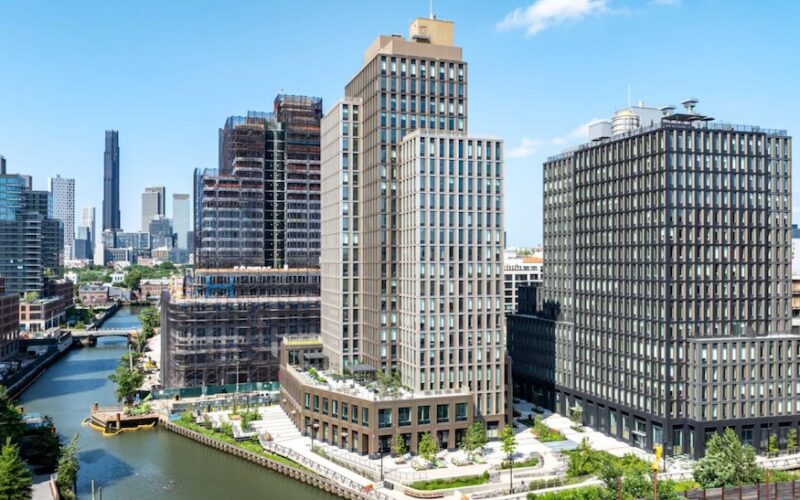




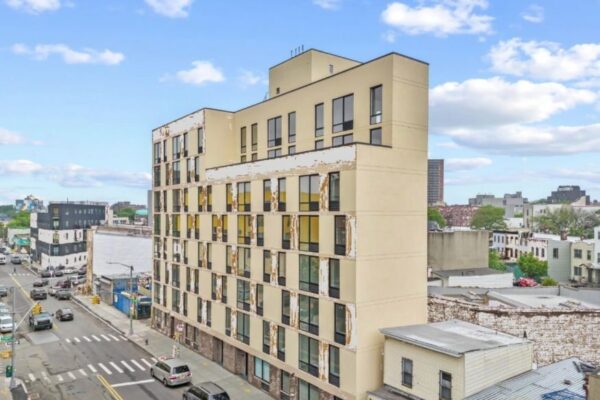

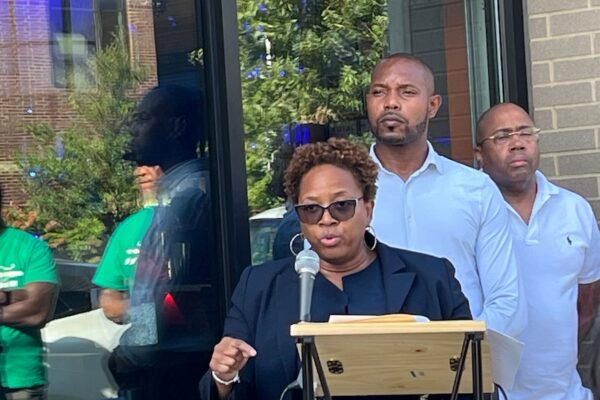
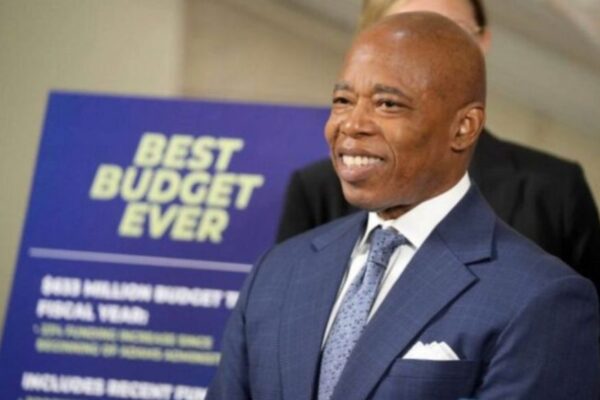





Leave a Reply